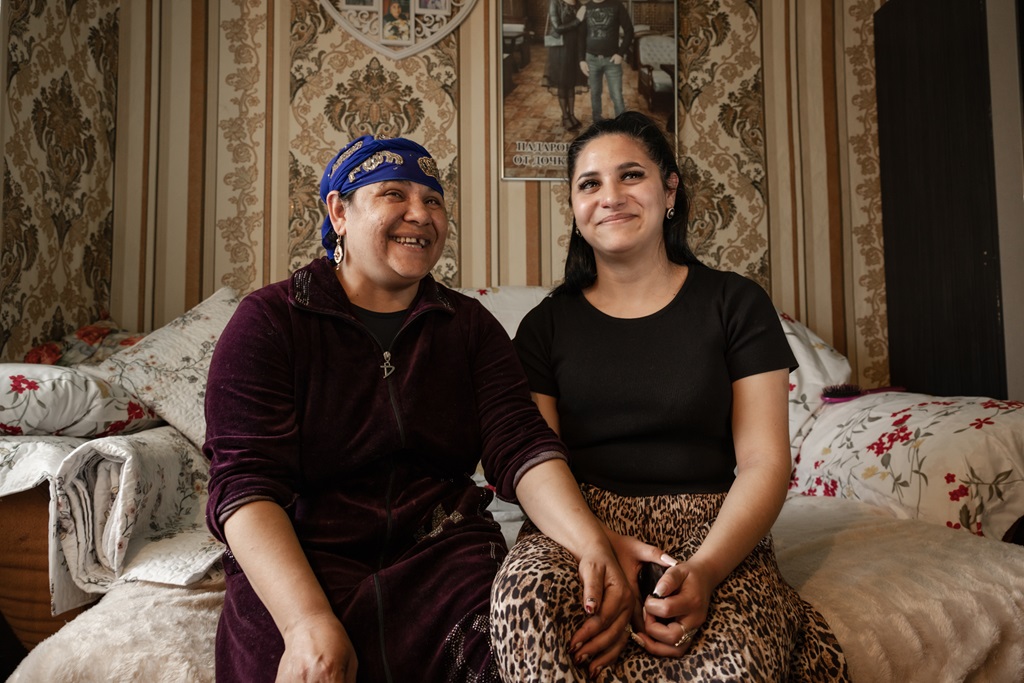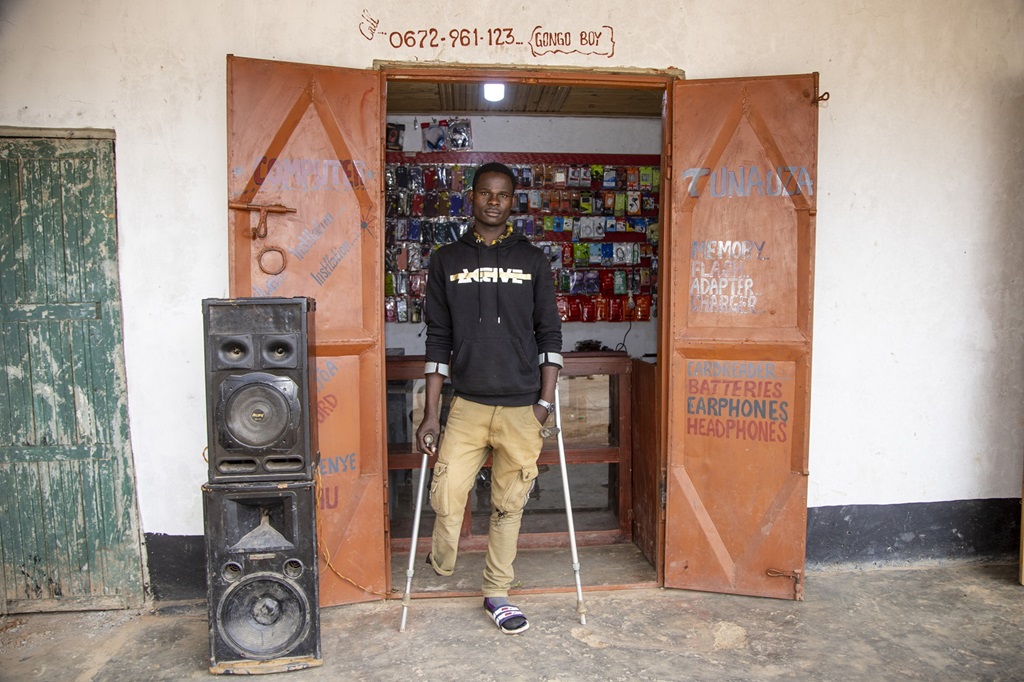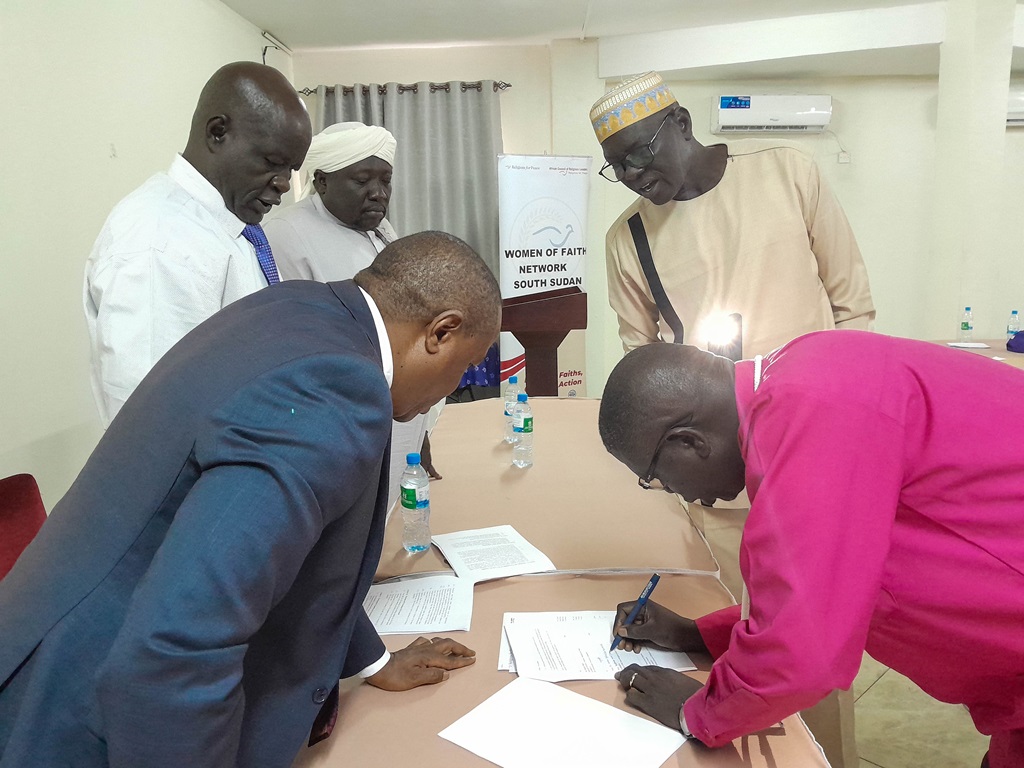The development cooperation programme of the Deaconess Foundation has improved the chances of a good life for thousands of people
26.9.2024
A new report by the Deaconess Foundation shows that the Deaconess Foundation’s development cooperation programme has improved the well-being and livelihoods of people in vulnerable situations. The programme has also promoted peace in the Horn of Africa region and improved the inclusion of people facing marginalisation.

The Deaconess Foundation’s development cooperation programme has, among other things, improved the status of Roma women in Moldova. Photo: Meeri Koutaniemi
The Deaconess Foundation’s development cooperation programme focuses on reducing poverty and inequality and building reconciliation in East Africa and the wider Eastern European region. It aims to improve the status of young people, women, and minorities in vulnerable situations as well as those affected by conflict.
In 2023, the development cooperation programme directly supported 8,856 people in difficult situations. A further 24,033 people benefited indirectly from the programme. According to the 2023 annual report of the programme, the status of these people has improved in many ways.
“Halfway through the four-year programme period, it is already evident that the well-being of the people supported by the programme has improved and that they have more opportunities to lead the lives they want,” says Saija Niemi, Project Manager for International Operations.
“The success of the programme’s work is being closely monitored, both in terms of immediate results and longer-term impact. Special attention is paid to the sustainability of the results, even after the programme support has ended”.
Effective partnerships enable productive work
The Deaconess Foundation runs the development cooperation programme in partnership with local civil society organisations. In 2023, the programme operated in Ukraine, Moldova, Belarus, Kosovo, Tanzania, Somalia/Somaliland, Ethiopia and South Sudan. In addition, a project focusing on global education and communication was implemented in Finland.
“Many crises, conflicts and acts of oppression made the programme work in 2023 difficult. The Deaconess Foundation’s partner organisations were able to adapt to the changing circumstances and adopt new approaches to their work. Thanks to their efforts, the programme could be implemented despite regional upheavals and global problems,” explains Niemi.
An important part of the programme is to strengthen the expertise and advocacy work of partner organisations, as a strong and independent civil society is a prerequisite for the realisation of democracy and human rights. This is particularly important in countries where civil society activities are severely restricted, such as Belarus.
According to the final report, this objective was achieved. Many partner organisations were able to influence legislation so that the human rights of the minority groups they represent will be better realised in the future. 1,049 representatives of authorities and local or regional administrations received training on how their services can better support people in difficult situations.
Collaboration with public, private and international actors makes the results achieved sustainable.
For example, in Ukraine, the cooperation of the Deaconess Foundation’s partner organisation Roma Women’s Fund Chiricli with the immigration office and the Ukrainian Parliamentary Commissioner for Human Rights has helped undocumented Roma register in state systems. The simpler registration processes being developed could help thousands of Roma left outside state systems to obtain their rightful civil rights.
Employment strengthens other forms of inclusion
The programme has promoted employment and sustainable livelihoods. With its support, 541 people from disadvantaged backgrounds have found employment, started their own business or developed another source of income since 2022.
Livelihood improvements have been facilitated through a range of mentoring and training activities, as well as collaboration with the private and public sectors. With the encouragement and support of the programme partners, businesses and public administrations have begun to hire minorities and people with disabilities, who were often left without employment opportunities.
Through coaching and employment, previously marginalised people have increased their self-esteem and begun to participate more actively in their communities, for example through volunteering.
Building self-confidence is the first step to change

Felix Kitenusa in front of his store providing phone repairs and accessories. Photo: James Kasela
The psychosocial support included in the training to promote employment for young people in difficult situations has proved to be extremely important, even life-changing, for some participants. They have gained confidence and motivation to change their lives.
Felix Kitenusa, who lives in the village of Igoda in Tanzania, used to work as a hairdresser and motorcycle taxi driver. After losing his leg in a motorcycle accident, he began to behave recklessly and lost the trust of his community.
“The mentoring focusing on building self-esteem and responsibility changed me. I decided to become a better person and started going to church regularly,” says Felix.
He has now regained the trust of his community. After participating in entrepreneurship training organised by the project, he borrowed money and started a phone repair shop. “I want to expand my business. The first step would be to sell phones in addition to repairing them. My dream is to become a successful businessman.”
Peace is built in communities
The development cooperation programme has supported insider reconcilers working in local communities, especially in providing psychosocial support to those affected by conflicts. As a result, insider reconcilers now have better opportunities to prevent and mediate conflicts in the Horn of Africa region. In 2023, 205 insider reconcilers were involved in 48 peace processes.

The signing of the founding document of the Inter-Religious Council of South Sudan, in December 2023 in the South Sudanese capital of Juba. Photo: ACRL
One significant achievement is also the establishment of the Inter-Religious Council of South Sudan in December 2023. The council, created as a result of the long-term work of the African Council of Religious Leaders and its South Sudanese partner organisations, can play a crucial role in promoting understanding and peace between different religious communities.
Religious leaders have significant influence in the country and can promote conflict resolution by preaching tolerance, forgiveness and understanding, which the work of the Council promotes.
The Inter-Religious Council can also act as a mediator in disputes and conflicts, facilitating negotiations between different groups.